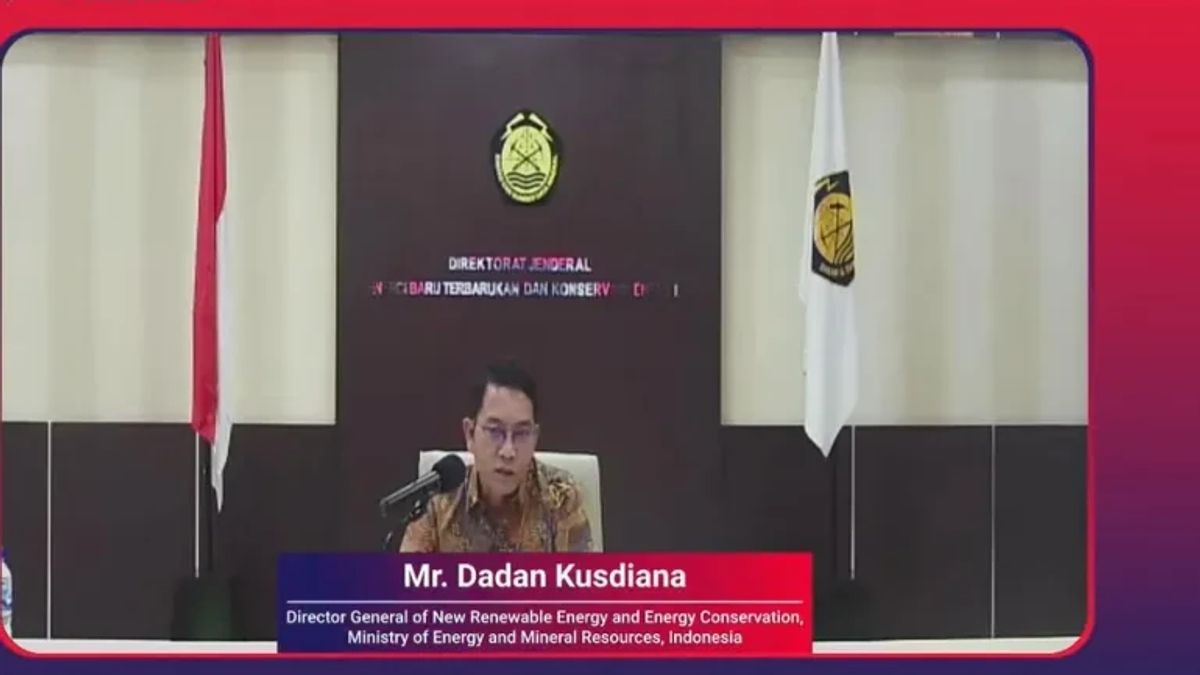JAKARTA - Director General of New, Renewable Energy and Energy Conservation (EBTKE) Dadan Kusdiana said the development of green hydrogen plays a strategic role in pursuing the decarbonization target of the global energy system.
According to him, the industrial sector will be the main target for the acceleration of energy sources which are considered as one of the contributors to the energy transition.
"Green hydrogen is the main pillar of decarbonization for industry. We need technology that can make a significant contribution in industrial applications such as the manufacture of cement, ceramics or glass," Dadan told reporters, Friday, June 17.
Dadan continued, the urgency of green hydrogen is considered as important as battery storage (energy storage) in the future.
In fact, the Indonesian government has included rules for the use of hydrogen in the New and Renewable Energy Bill (RUU EBT).
Not only that, the government also provides financial incentives for the public and private sectors who want to optimize green hydrogen
In Indonesia, continued Dadan, the development of green hydrogen is in line with the enormous potential of renewable energy.
The Ministry of Energy and Mineral Resources and the German government through the Deutsche Gesellschaft für Internationale Zusammenarbeit GmbH (GIZ) have studied the potential of the green hydrogen market in Indonesia, around 1,895 kT/year in 2021, including for industry (Urea, Ammonia, Refinery, Methanol), and other demands such as manufacture of Biofuels, green steel, island networks, and heavy vehicle fuel cells.
Dadan said that there are several green hydrogen investment plans and ongoing pilot projects, including green hydrogen hybrids from solar and wind power in East Sumba (7-8 MW), and the use of green hydrogen in the new capital city by 2045 (4,000 MW). for public transportation and 21,000 tons for the industrial sector.
Nevertheless, Dadan revealed that there are several success factors in implementing a green hydrogen project, starting from setting policies, access to resources, potential markets, standards, availability of technology to financial support.
"Each country has different characteristics in the development of green hydrogen, but has the same technological and funding needs. The challenge is how green hydrogen is economically feasible, financially attractive, and useful for society," he stressed.
Meanwhile, ETWG Chair Yudo Dwinanda Priaadi explained that hydrogen and energy storage will support the development of various NREs to overcome intermittent problems through Variable Renewable Energy (VRE).
He encouraged hydrogen to be an energy solution in the future, especially for G20 member countries.
"It is important for G20 countries to have planning and incorporate hydrogen and energy storage into their respective NZE roadmaps," concluded Yudo.
The English, Chinese, Japanese, Arabic, and French versions are automatically generated by the AI. So there may still be inaccuracies in translating, please always see Indonesian as our main language. (system supported by DigitalSiber.id)











